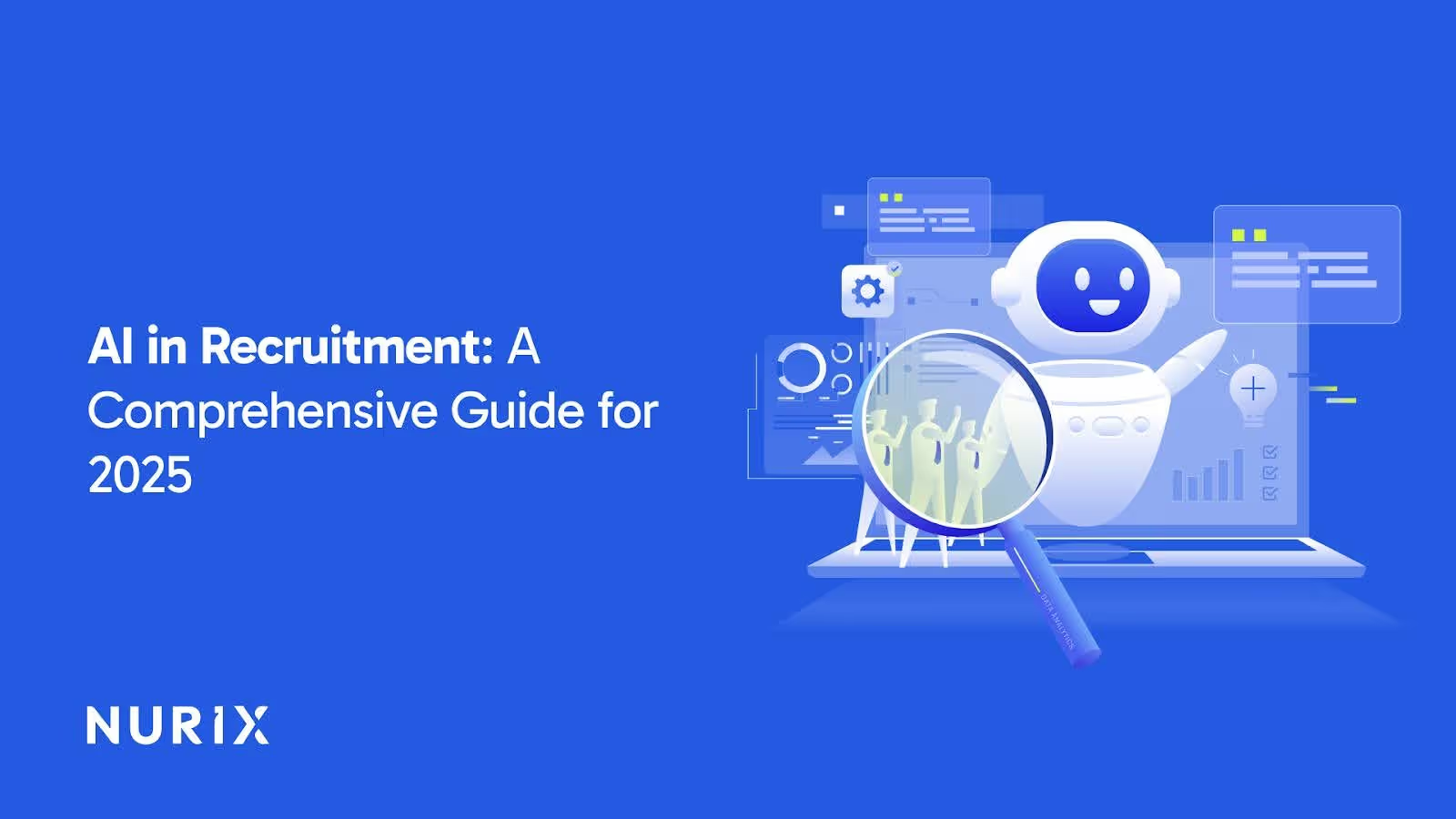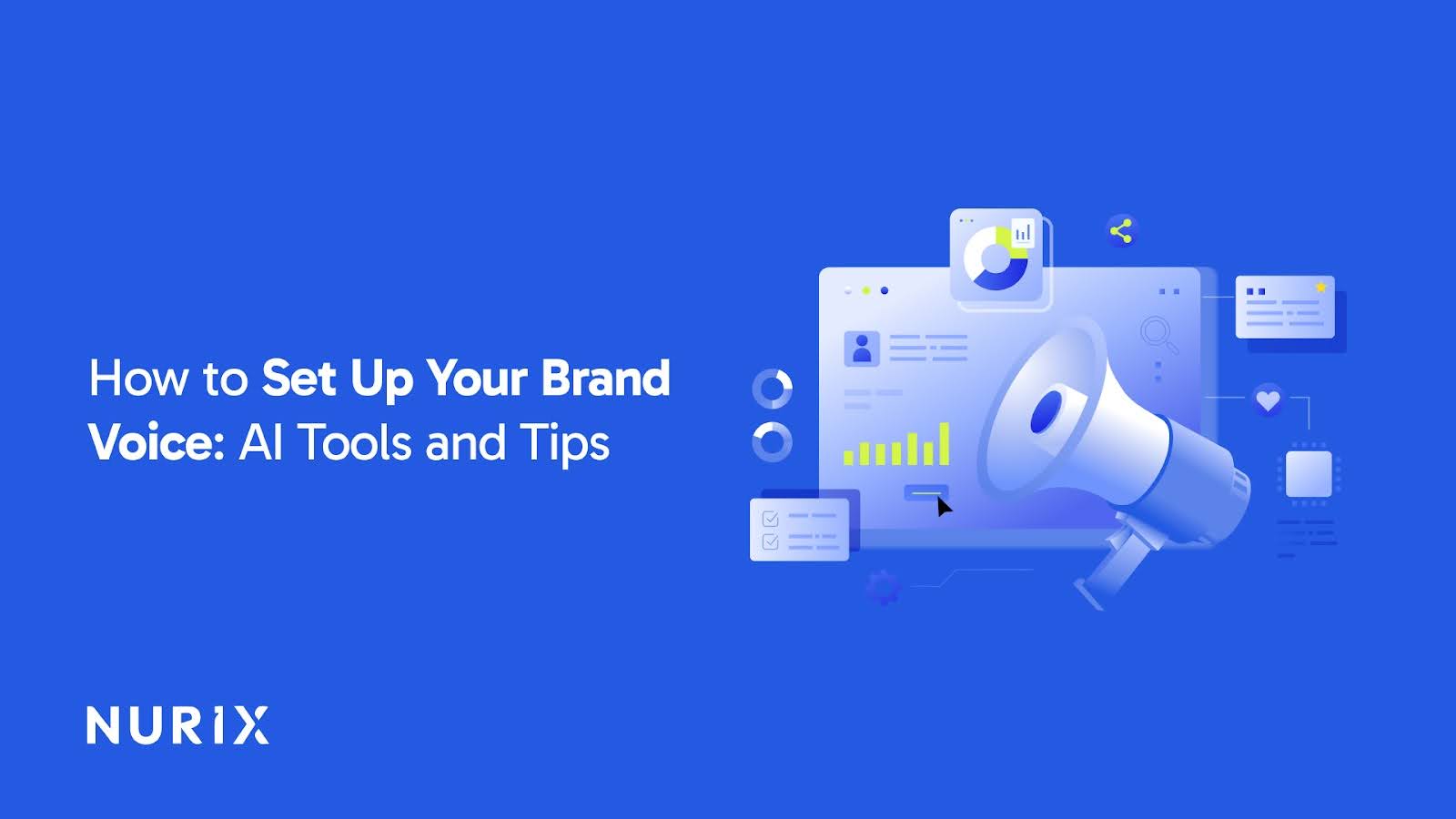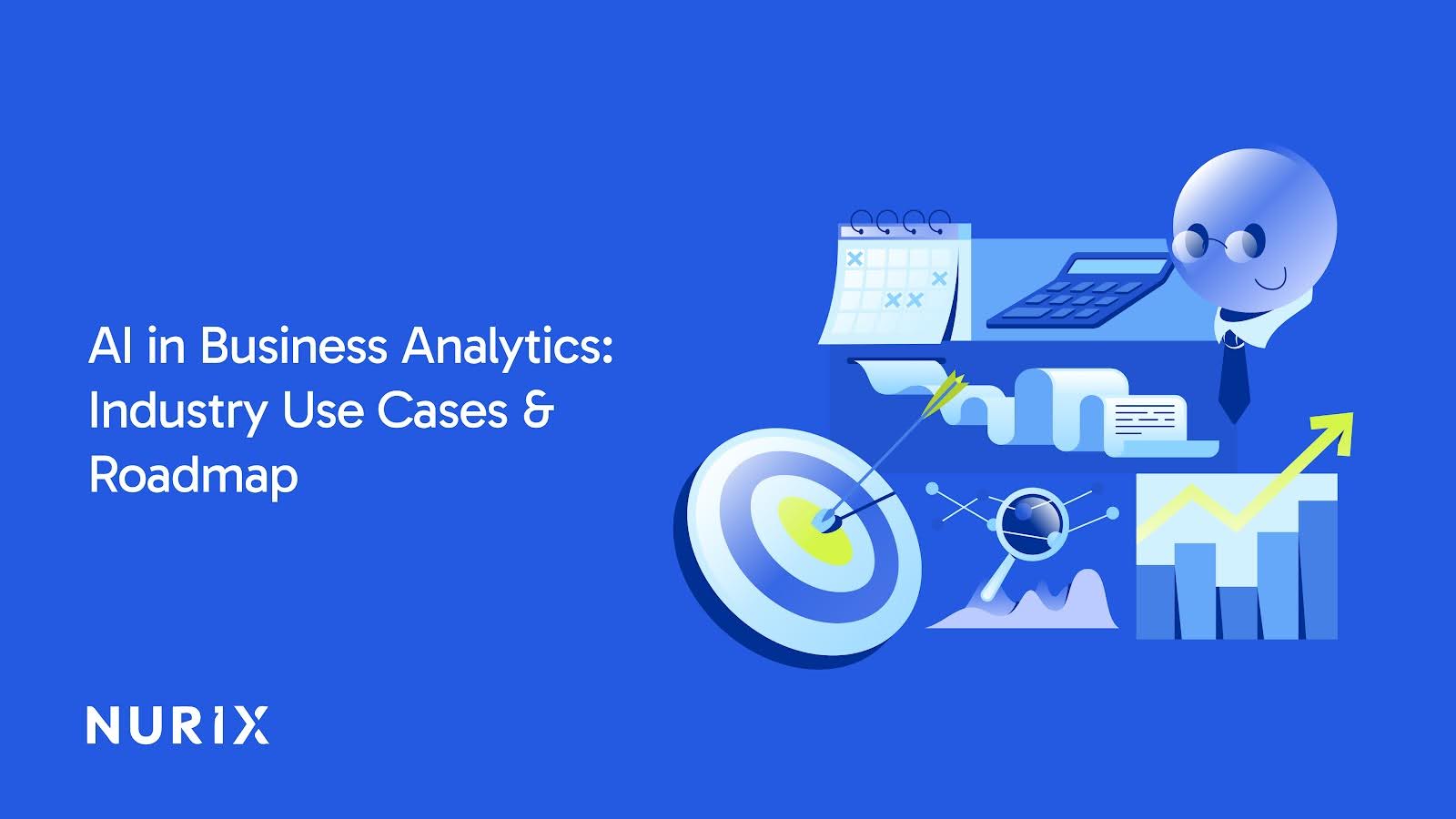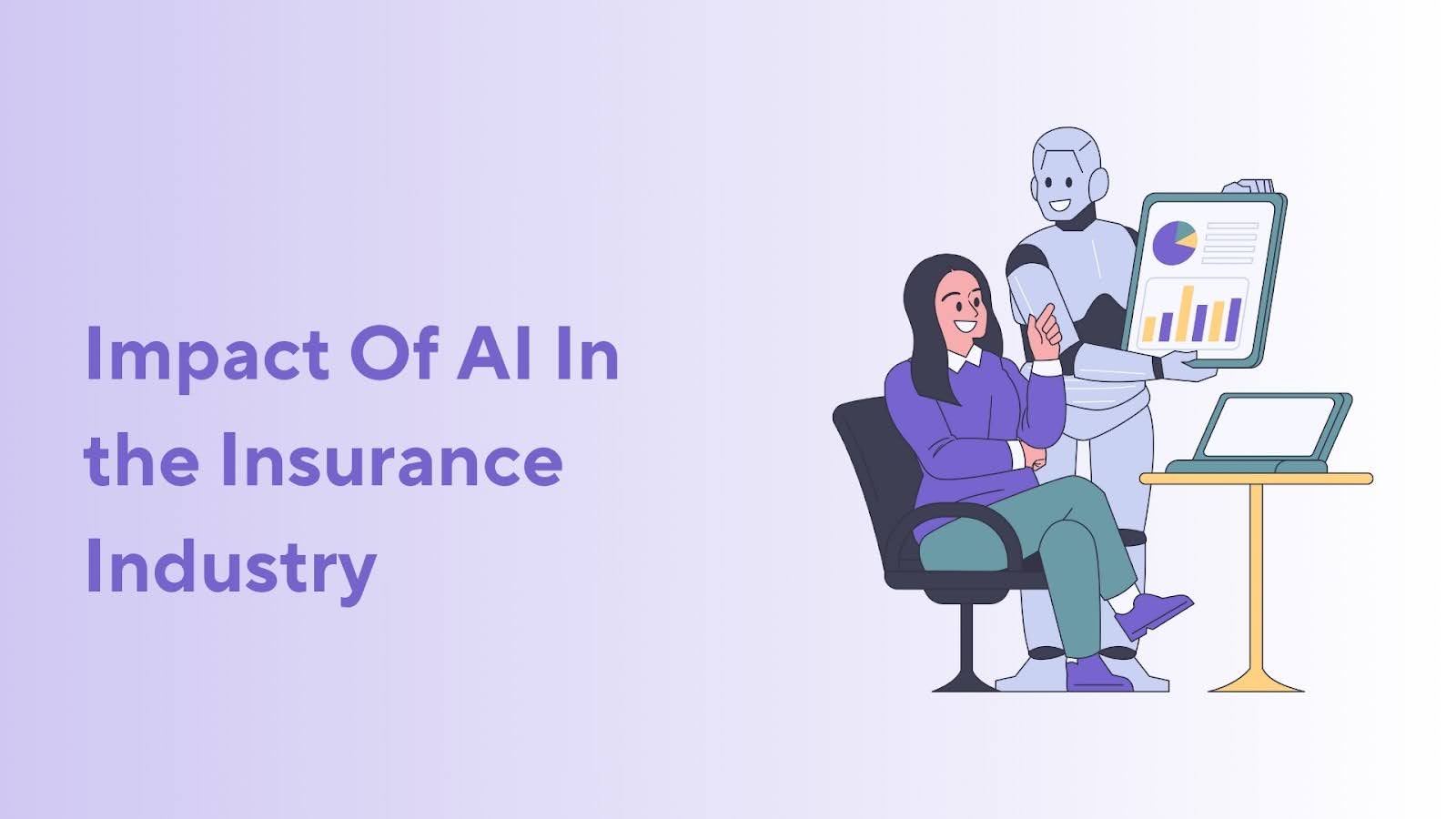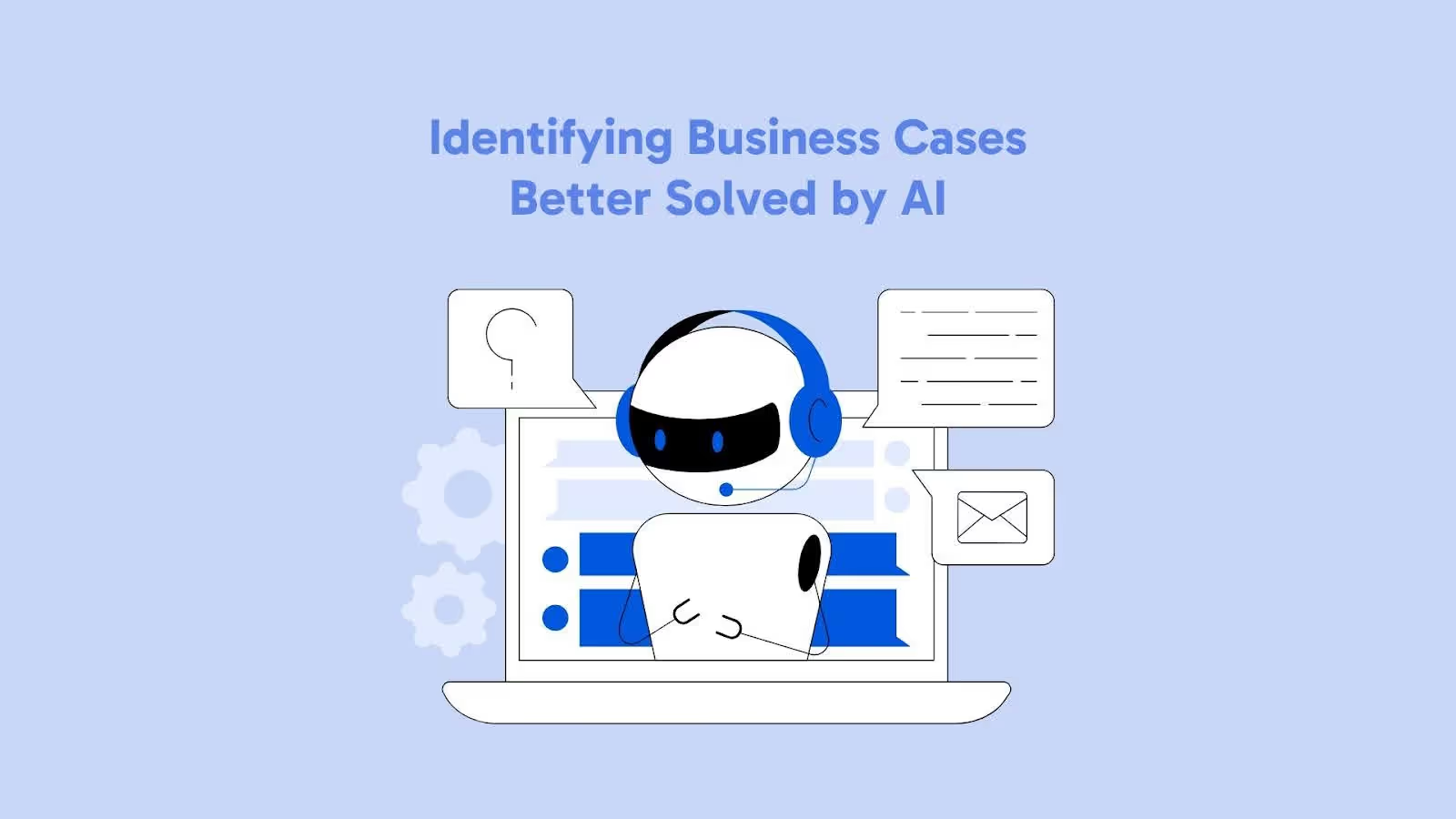The process of hiring the right candidates can be overwhelming, with recruiters spending countless hours reviewing resumes and scheduling interviews. 99% of hiring managers now use AI in recruitment, with 98% reporting significant improvements in efficiency due to automation of tasks.
This blog will explore how AI is impacting recruitment in 2025. We'll cover the benefits it brings, such as faster hiring and better candidate matching, while also addressing the challenges that come with adopting this technology.
Key Takeaways
- Streamline Recruitment: AI in recruitment automates repetitive tasks like resume screening and interview scheduling, saving time and improving hiring efficiency.
- Enhance Candidate Experience: AI-powered chatbots provide real-time engagement, guiding candidates through the process and keeping them informed, improving overall satisfaction.
- Reduce Bias: AI can help minimize unconscious bias by evaluating candidates based on their qualifications, rather than personal demographics, ensuring a fairer and more objective hiring process.
- Improve Decision-Making: With data-driven insights, AI helps recruiters make smarter hiring decisions by analyzing trends and identifying the best candidates.
- Ensure Compliance: AI tools ensure data privacy and compliance with global regulations, safeguarding candidate information throughout the recruitment process.
What is AI in Recruitment?
AI in recruitment refers to the use of artificial intelligence technologies to streamline and enhance the hiring process. AI is being applied at every stage of recruitment, offering significant advantages to HR teams.
Automating repetitive tasks allows human recruiters to focus on the aspects of hiring that require personal interaction and judgment, like building relationships and making decisions.
You May Also Want to Read: AI Agents vs. Traditional AI: What Sets Them Apart?
Now that we understand what AI in recruitment is, let’s explore the key benefits it brings to the hiring process.
What Are the Benefits of AI in Recruitment?
AI offers numerous benefits that improve efficiency and enhance the candidate experience. Here are the key advantages:
- Saves Time: AI automates time-consuming tasks like resume screening, scheduling, and scoring, giving HR teams more time to focus on strategic hiring decisions.
- Reduces Bias: AI helps minimize unconscious bias by evaluating candidates based solely on skills and qualifications, ensuring a fairer, more objective hiring process.
- Improves Communication: AI chatbots provide real-time updates, quickly answering candidate queries and keeping them informed throughout the recruitment process.
- Enhanced Candidate Sourcing: AI analyzes external databases, social media, and job boards to find suitable candidates, expanding the pool of qualified candidates.
- Cost and Time Savings: Automating routine tasks reduces both time and costs, ensuring faster hires and lowering the risk of costly recruitment mistakes.
- Improved Candidate Experience: AI offers a smoother application process with instant feedback, boosting candidate satisfaction and enhancing your employer brand.
- Scalable Recruitment: AI can handle high volumes of applicants, making it easier to scale your hiring efforts without sacrificing quality.
- Reduces Hiring Costs: AI speeds up the recruitment process, improves candidate selection, and reduces the overall cost per hire.
Incorporating AI into recruitment drives efficiency, improves communication, cuts costs, and promotes fairness, making it an essential tool for modern hiring.
With these benefits in mind, let’s look at how AI is being applied across different stages of recruitment.
Uses of AI in Recruitment
AI is transforming the recruitment process, making it more efficient, data-driven, and candidate-friendly. Here’s how AI is being used in recruitment today:
- Machine Learning (ML) for Data-Driven Insights: ML analyzes hiring data, revealing trends and providing insights that help HR teams to make informed decisions without sifting through piles of data.
- AI-Based Automation for Onboarding: Automating onboarding saves HR teams time while making the experience personalized, with tools that guide new hires using NLP and adaptive AI.
- Streamlined Candidate Sourcing: AI helps search through databases and professional networks to find potential candidates, expanding your talent pool and increasing the likelihood of a perfect match.
- Automated Resume Screening: AI quickly scans resumes, matching candidates with pre-set criteria. This saves time, reduces human bias, and ensures only the most relevant candidates advance.
- Chatbot Interactions for Real-Time Engagement: AI chatbots engage with candidates, answering questions, guiding them through applications, and collecting information to enhance the candidate experience.
- Predictive Analytics for Proactive Recruitment: AI’s predictive analytics help HR teams forecast future hiring needs based on past data, allowing for proactive workforce planning.
- Skill Assessment and Evaluation: AI evaluates candidates' skills through online tests, coding challenges, and simulations, ensuring that the most qualified candidates move forward in the process.
- Compliance and Risk Management: AI helps ensure recruitment processes comply with labor laws and regulations, reducing legal risks and maintaining a fair, transparent hiring process.
AI in recruitment makes the process effective, fair, and candidate-friendly.
Also Read: Identifying Business Cases Better Solved by Artificial Intelligence
Now that we’ve seen how AI can be used, let’s discuss the best practices for integrating it into your recruitment strategy.
Best Practices for Integrating AI in Recruitment
Integrating AI into your recruitment process requires a clear strategy. Here’s a step-by-step process:
1. Define Clear Goals
Identify specific pain points you want AI to solve, such as automating resume screening, improving candidate sourcing, or enhancing engagement. Set measurable objectives to guide your chatbot’s functionality and track its success.
For example, if reducing time-to-hire is a priority, ensure that AI tools are designed to fast-track the screening and interview scheduling processes.
2. Choose the Right Tools
Select AI tools that integrate seamlessly with your existing HR systems and address your unique needs. Tools like Nurix AI offer real-time analytics, seamless integration with your current systems, and AI-driven candidate engagement that ensures a smooth and efficient recruitment process.
3. Balance Automation with Human Touch
Utilize AI for repetitive tasks, such as initial screenings and FAQs, while ensuring that human recruiters handle more complex or sensitive situations. Keep the process transparent and ensure candidates feel valued throughout their journey.
4. Ensure Ethical AI Usage
To prevent bias, regularly audit AI-driven decisions in the hiring process. Establish guidelines to ensure your AI models are trained on diverse data sets, minimizing discrimination. Ensure your AI is programmed to focus on qualifications rather than irrelevant factors, such as demographic data, to maintain fairness and compliance.
5. Train Your HR Team
Provide training on the technology’s capabilities and limitations, ensuring recruiters understand how AI recommendations should complement their own judgment. Promote a mindset of collaboration between AI and human judgment to make well-informed decisions.
6. Data Preparation and Seamless Integration
Organize your recruitment data to ensure AI systems function effectively. Standardize data formats, remove duplicates, and handle missing values.
Select AI tools that seamlessly integrate with your ATS and other recruitment platforms, ensuring a smooth workflow and accurate data exchange across systems.
7. Testing, Monitoring, and Optimization
Test your AI tools in a controlled environment before fully launching them. Collect feedback from your HR team and candidates, track key performance indicators, and identify areas for improvement.
Regularly monitor AI performance and optimize it based on real-time data to keep it aligned with your recruitment goals.
8. Compliance and Ethics
Ensure that AI tools comply with data privacy laws like GDPR. Be transparent with candidates about how their data is used and stored. Regularly review your AI’s decision-making process to ensure it remains ethical, unbiased, and fully compliant with legal standards.
9. Continuous Learning and Updates
Stay informed about new AI developments and best practices in recruitment. Continuously update your AI tools, refine processes, and adapt to changes in candidate expectations and market trends to keep your recruitment process efficient and competitive.
Following these best practices helps you integrate AI into your recruitment process smoothly, enhance efficiency, and provide a better candidate experience while ensuring fairness.
Also Read: How to Design and Deploy Chatbots for Customer Interactions
While AI offers numerous advantages, several challenges need to be addressed. Let’s take a closer look at those.
Potential Challenges of AI in Recruitment
It’s essential to address the challenges that come with adopting AI technology to ensure it’s used ethically and effectively.
1. Data Privacy and Security Risks
AI systems process large amounts of sensitive candidate data, increasing the risk of data breaches. A failure in security can lead to significant financial and reputational damage.
2. Lack of Human Touch
While AI can automate tasks like resume screening, it lacks the emotional intelligence and nuanced judgment that human recruiters provide.
This may result in overlooking candidates with strong interpersonal skills or cultural fit, which can impact long-term team success.
3. Dependence on Technology
Over-automation may limit recruiters' opportunities to develop skills in handling more complex and nuanced tasks. As AI automates more recruitment tasks, some recruiters worry about being replaced.
4. Time-Consuming Data Gathering
To function effectively, AI requires a large volume of quality data. Gathering this data can be time-consuming and costly, potentially delaying the implementation of AI tools.
5 .Choosing the Right Data for Accurate Predictions
Using irrelevant data, such as facial recognition or existing employee profiles, can lead to flawed outcomes. AI tools can also replicate unconscious human biases present in historical data, leading to discriminatory hiring decisions.
Addressing these issues head-on ensures that AI can enhance your hiring process without sacrificing fairness, diversity, or job security.
Despite the challenges, AI can significantly enhance your hiring process. Here’s how you can utilize it effectively with tools like Nurix AI.
Enhance Your Hiring Process with Nurix AI
Nurix AI can help you implement effective AI-driven recruitment solutions that improve efficiency, reduce bias, and enhance candidate engagement. Here's how:
- Automated Resume Screening: Nurix AI quickly processes applications, filtering out unqualified candidates and saving your HR team valuable time.
- Seamless Integration with Existing Systems: Integrate easily with your ATS, HR platforms, and scheduling tools to streamline data management and recruitment workflows.
- Bias-Free Candidate Evaluation: Ensure more objective hiring decisions by using AI to analyze candidates based on relevant qualifications, not historical biases.
- Real-Time Candidate Engagement: Provide instant responses and guide candidates through the process with natural, personalized interactions, 24/7.
- Data Privacy and Compliance: Safeguard candidate data with strong encryption, ensuring full compliance with global privacy regulations.
- Actionable Insights: Gain valuable insights from data analytics to fine-tune your recruitment strategy and improve hiring decisions.
Nurix AI helps make your recruitment process faster, smarter, and more efficient without losing the human touch.
Conclusion
AI is increasingly enhancing recruitment, offering significant advantages in efficiency, candidate engagement, and decision-making. Automating repetitive tasks, such as resume screening and interview scheduling, enables HR teams to focus on higher-value tasks and make informed hiring decisions.
However, it's essential to address challenges such as data privacy, bias, and the need for human oversight to ensure a balanced and ethical recruitment process.
As businesses continue to adopt AI in recruitment, integrating the right tools and following best practices will be crucial to success. Ready to optimize your hiring process? Contact Nurix today to learn how our AI-powered solutions can help you streamline recruitment and make smarter hiring decisions.

